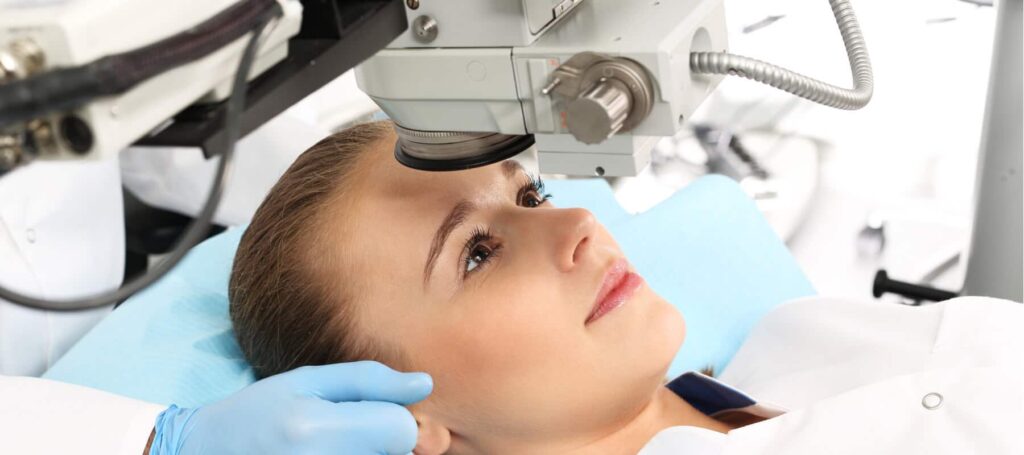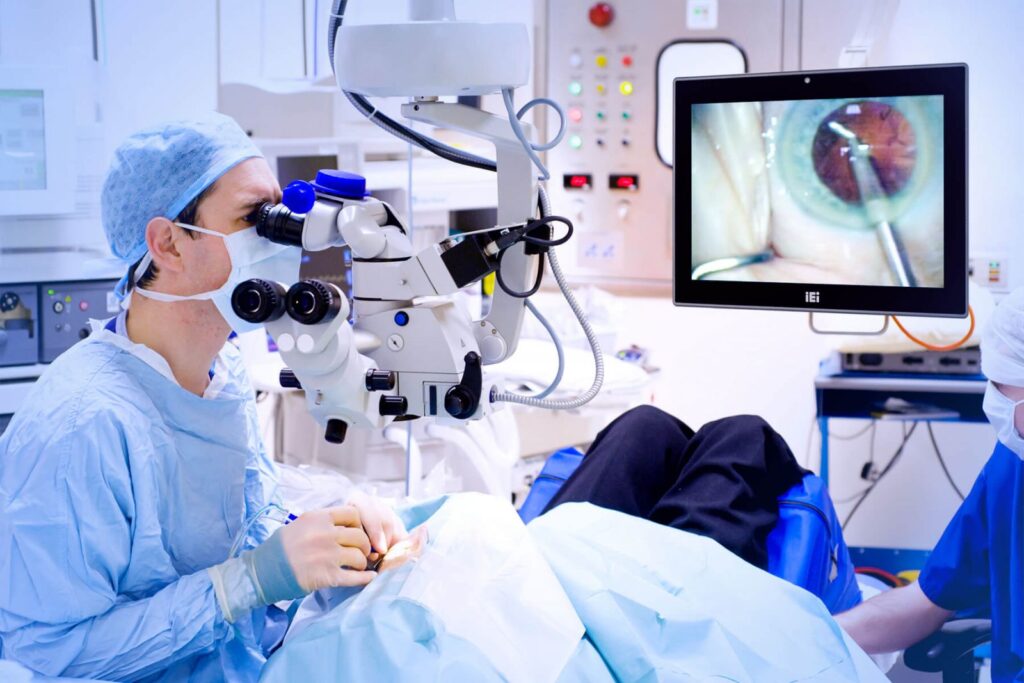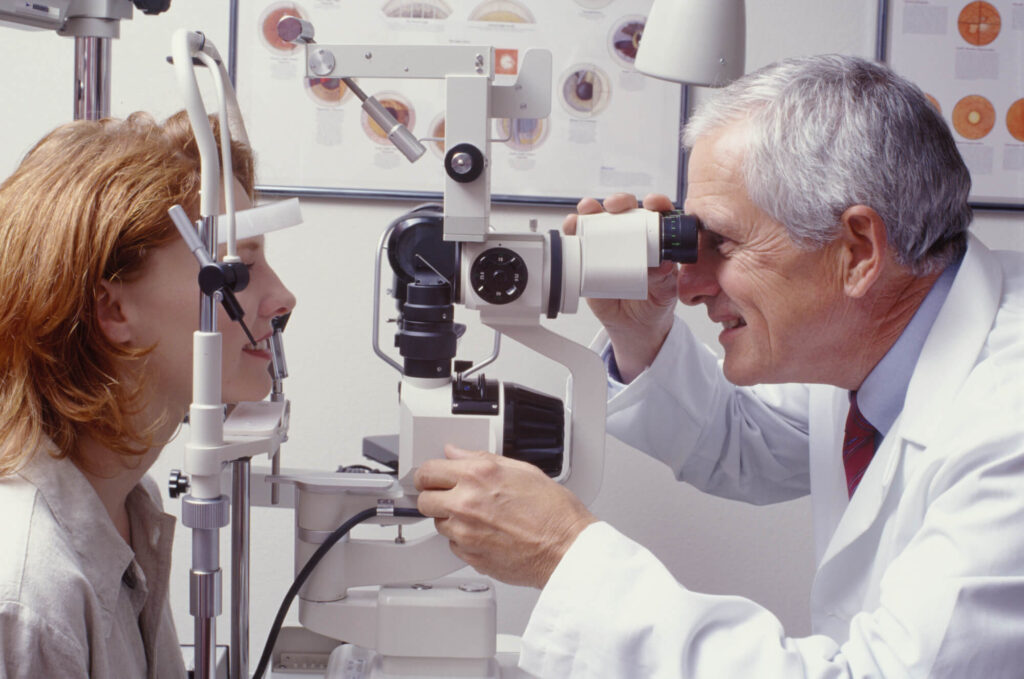The permanent fix for cataracts it to eliminate the cataract surgically. To date, you will find no eye or medications drops which have been found to reverse cataract formation. Nevertheless, your doctor may see if changing your glasses prescription will enable you to get better vision in the meantime. This’s because cataracts are able to cause nearsightedness. Nevertheless, the sole treatment for a cataract is surgical removal of the natural lens.
When to Remove?
Majority of age related cataracts are a regular part of the aging process so simply “having” cataracts, shouldn’t mean it should be removed. Lots of people with cataracts don’t have any visible symptoms. If you’re told you’ve a cataract, but it doesn’t interfere with the activities of yours of life or even stop you from leading a productive and active life, then your doctor might tell you the cataract can be monitored. Nevertheless, in case you’re experiencing trouble reading, disabling glare while driving or perhaps difficulty engaging in the normal activities of yours of life – it might be time to consider cataract surgery.
To sum up, the perfect moment to eliminate a cataract depends on the individual and the symptoms of theirs. Nevertheless, if an individual has cataracts in both eyes that both require surgeries, these surgeries will often be performed several weeks apart. Cataract surgery on both eyes at exactly the same time isn’t recommended because there’s a chance of complications affecting both eyes; most worrisome is infection.
How much Should the Cataract Develop Before Having Cataract surgery?
A cataract doesn’t need to become “ripe” before it could be removed. In the past, the lens couldn’t be extracted properly from the eye unless it was at essentially advanced stage of development. With modern advances in cataract surgery, the lens are now taken out of the eye at any stage of development.
The patient ‘s Decision
It is crucial to realize it’s the individual who should – as well as should – think of the choice to undergo cataract surgery. It’s the doctor ‘s responsibility to inform individuals as well as offer them the data they have to create a well-informed and independent decision regarding cataract treatment.
A cataract is an eye disease in which the normally clear lens of the eye becomes opaque or cloudy, causing a decrease in vision. The natural lens of the eye focuses light onto the rear of the eye (the retina) so images seem to be clear and with no distortion. The clouding of the lens during cataract formation causes distortion and blurring of vision. Cataracts are generally an extremely easy process of normal aging but can sometimes develop rapidly. They commonly affect both eyes, but it’s not unusual for a cataract in one eye to advance faster. Cataracts are extremely common, particularly among the elderly.
Precisely the reason why cataracts occur is unknown. Nevertheless, most cataracts seem to be brought on by changes in the protein structures within the natural lens that occur over a long time as well as result in the lens to be cloudy. Rarely, cataracts are able to present at birth or perhaps in early childhood as a result of hereditary enzyme defects, other genetic disease, or perhaps systemic congenital infections. Serious trauma to the eye, eye surgery, or perhaps intraocular inflammation also can cause cataracts to develop much more rapidly.

All other factors that could result in development of cataracts at an earlier age include excessive ultraviolet light exposure, exposure to ionizing radiation, diabetes, smoking, or perhaps the use of certain medications, like oral, topical, or perhaps inhaled steroids. Other medications which could be associated with cataracts include the extended use of phenothiazines and statins.
The total number of individuals who have cataracts in the United States is believed to increase to thirty million by 2020. When folks develop cataracts, they start to have trouble doing activities they love. Several of the most frequent complaints include difficulty driving at night, reading, watching movies or television, and recognizing faces. These’re all activities for which vision that is clear is important.
What exactly are the symptoms and signs of cataracts?
The vision when one has a cataract is similar looking through a dirty windshield of an automobile or perhaps smearing grease over the lens of a digital camera or even the glasses of yours. Cataracts could cause a number of visual changes and complaints, including blurred vision, difficulty with glare (often with sun that is bright or perhaps automobile headlights while driving at night), flat color vision, increased nearsightedness accompanied by frequent changes in eyeglass prescription, and sometimes, double vision in one eye. A change in glasses may at first help once vision starts to change from a cataract.
Nevertheless, as the cataract continues to become denser, vision also becomes cloudier, and better contact or glasses lenses won’t improve sight. Several folks with cataracts may experience symptoms of vision problems with just a mild cataract in one eye, while others might not notice any visual abnormalities until both eyes develops significant cataracts.
Cataracts typically develop slowly and are generally not painful or even associated with any eye redness or perhaps other symptoms unless they start to be very sophisticated. Rapid and/or painful changes in vision raise suspicion for other eye diseases and should be examined by an eye care professional.

Just how do health care professionals diagnose cataracts?
Cataracts are detected by finding opacification or lens cloudiness during a medical eye examination by an eye care professional or perhaps sometimes by a primary care physician. The abnormal lens can be seen making use of a number of special viewing instruments. Using different tests, an ophthalmologist (MD, a medical doctor specializing in diseases of the eye) or perhaps an optometrist (a doctor of optometry, a healthcare professional trained in primary care of the eye, not exactly the same as a medical doctor) can tell just how much a cataract may be affecting vision. Usual eye tests include testing visual acuity, glare sensitivity, color vision, contrast sensitivity, and a comprehensive evaluation of all the different areas of the eye, making sure that vision loss isn’t because of many other common eye problems, glaucoma, including diabetes, or perhaps macular degeneration.
Most cataracts associated with aging develop gradually, and a lot of patients won’t notice visual loss until it’s pretty advanced. It’s not important to have cataract surgery to get rid of a cataract until it starts to affect vision. The development of cataracts is unpredictable; some cataracts remain less heavy and never ever progress to the stage where they cause cloudy vision and need treatment, while others progress more quickly.
Therefore, the choice and timing to proceed with cataract surgery is individualized for each patient. Your doctor is going to be in a position to let you know exactly how much of the vision loss of yours is a result of cataracts and also the amount of recovery of vision that might be expected with cataract surgery. If your visual loss is entirely as a result of the presence of a cataract, vision should be completely restored with successful cataract surgery.

